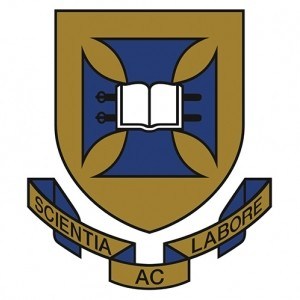Photos of university / #ouranu
The Master of Astronomy & Astrophysics (Advanced) is a full-time two year program based upon 50% coursework and 50% research project. The coursework component may be tailored to a student's needs, and can include astrophysical techniques, astrophysical computing, planetary science, stellar astrophysics, galaxies, and cosmology. Many courses contain research or hands-on components that develop skills and knowledge in the latest advances in astronomy and astrophysics. The research project provides the opportunity to enhance and develop detailed knowledge and skills in a specific area of astronomy or astrophysics. The research component may include the acquisition and analysis of telescope data, the development of theoretical models, or the development and testing of new astronomical instrumentation.
Career Options
Learning Outcomes
Upon successful completion, students will have the skills and knowledge to:
- demonstrate mastery of theoretical knowledge in their area of study;
- apply their knowledge in astronomy & astrophysics to new problems;
- interpret, synthesize and critically analyse new published literature of relevance to astronomy & astrophysics;
- demonstrate basic and complex analysis skills that are commonly used in astronomy & astrophysics research;
- perform telescope observations or create theoretical simulations, interpret and analyse results, write reports and collate data into a thesis;
- present own research work to peers and research scientists;
- clearly communicate theory and results in both written and oral formats to specialist and non-specialist audiences.
Cognate disciplines
Physics, Mathematics, Earth & Marine Sciences, Computer Science
The Master of Astronomy and Astrophysics (Advanced) requires the completion of 96 units, which must consist of:
48 units from completion of the following coursework component:
A minimum of 24 units from completion of 8000-level courses in the subject area ASTR Astronomy and Astrophysics
A maximum of 24 units from completion of 6000-level courses in the subject area ASTR Astronomy and Astrophysics
A maximum of 18 units from completion of 6000-level or 8000-level courses from the following subject areas:
EMSC Earth and Marine Science
PHYS Physics
MATH Mathematics
COMP Computer Science
48 units from completion of the following research component:
48 units from completion of ASTR8010 Astronomy Research Project, which must be taken four times, in consecutive semesters.
Students must achieve a minimum 70% weighted average mark in the first 24 units of coursework and have the approval of the supervisor for the research project to continue in the Master program.
If the total number of units attempted exceeds 24 in the in the same teaching period in which the 24th unit is attempted, exactly 24 units will be used in the calculation of the weighted average mark with units from the course with the highest mark applied first followed by further units from course in descending order of marks.
Students who do not achieve a minimum 70% weighted average mark or do not have approval of an identified supervisor will be transferred to the Graduate Diploma of Science.
A Bachelor degree or international equivalent with an average mark of at least 70% and at least eight courses in cognate disciplines, and the approval of an identified supervisor for the research project/thesis.
All applicants must meet the University's English Language Admission Requirements for Students.
Applicants with a Bachelor Degree or Graduate Certificate in a cognate discipline may be eligible for 24 units (one semester) of credit.
Applicants with a Graduate Diploma or Honours in a cognate discipline may be eligible for 48 units (one year) of credit.
Students must achieve a minimum 70% average mark in the first 24 units of coursework and have the approval of the supervisor for the research project.
Cognate disciplines
Computer Science, Earth & Marine Sciences, Physics, Mathematics
ANU offers a wide range of scholarships to current and future students to assist with the cost of their studies. The University is committed to enabling all students, regardless of their background, to achieve their best at ANU and realise their potential.
Eligibility for ANU scholarships varies depending on the specifics of the scholarship and can be categorised by the type of student you are. Specific scholarship application process information is included in the relevant scholarship listing.
New students in this program are eligible to apply for a Commonwealth Supported Place. Visit the following website for further information: http://cmbe-cpms.anu.edu.au/study/2015-commonwealth-supported-places





